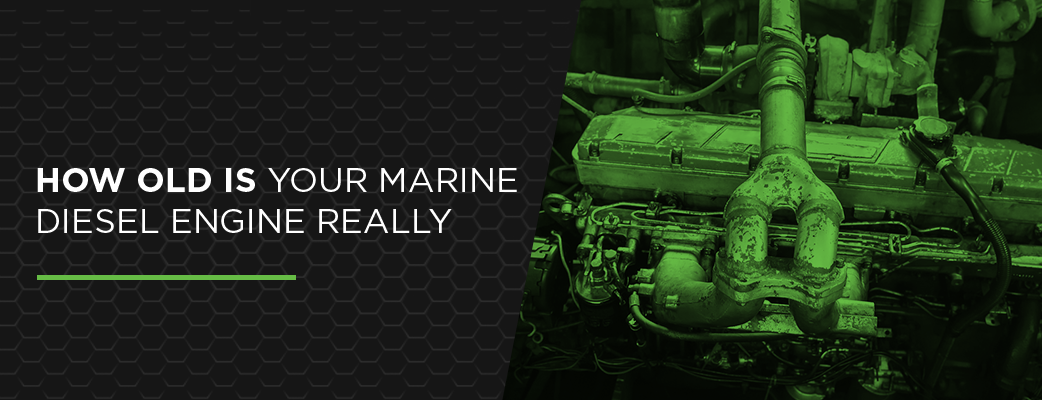
It’s easy to hear promises of marine diesel engines lasting 8,000 hours and believe they will hold up against any environment or weather any storm. Yet, like with any engine, longevity depends heavily on how well you maintain the equipment. You can take care of all an engine’s standard needs and still lose it in a few hundred hours thanks to one simple factor — water corrosion.
More forces are working on your marine engine than regular wear over time. Without the proper care and due diligence, your marine engine could face a premature retirement and force you to invest in a complete overhaul. If you work with boats regularly, you need to understand how to determine the true age of a marine diesel engine.
What Time and Water Can Do to Your Engine
Boats typically spend a huge amount of time out on the water. They’re exposed to harsh conditions, as well as the corrosive influences of water and other substances that may be in it. The most dangerous component that diesel engines must often endure is saltwater, and even the more efficient, rugged designs can quickly suffer damages from it.
Engines that should last for years have been known to cost unprepared owners major repair expenses after just a few hundred hours due to seawater damage. While old marine engines require repairs and maintenance over the years, you’re probably less keen on taking responsibility for these costs over such a short period.
The reality is that the maximum age of a marine diesel engine versus its true lifespan is often different. The question, “How old is my marine diesel engine?” is a challenging one to answer, as a simple contrast in maintenance quality can have a big effect on performance and durability.
How Can You Protect Your Used Marine Diesel Engine?
A lack of proper maintenance can age any marine engine fast, especially if you operate in saltwater environments. Aside from the standard maintenance tactics such as cleaning, oil changes and filter changes, it’s important to consider the potential consequences of corrosion as well.
There are a variety of corrosion prevention solutions available that can help minimize seawater damage to engines and fuel systems. Reduce some of the risks by working with an experienced mechanic or having regular inspections to ensure the continued quality and productivity of all the system components. As you need to replace or repair mechanisms, you can make the necessary adjustments before suffering a major engine or system failure.
With the help of an educated service provider and a commitment to providing your boat with the care it needs, you can reduce the age of your marine diesel engine and keep it in excellent shape for many more years. Contact Diesel Pro Power to learn more or shop for marine engine parts today.



 Free US Calls: 1-888-433-4735
Free US Calls: 1-888-433-4735 International: 305-545-5588
International: 305-545-5588